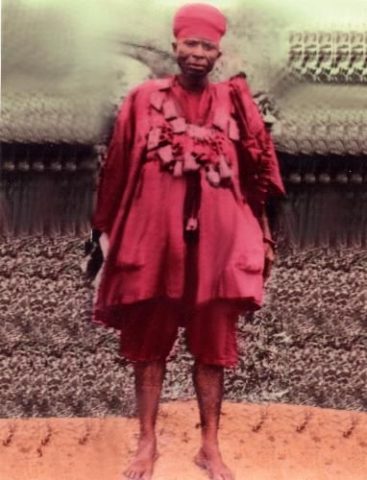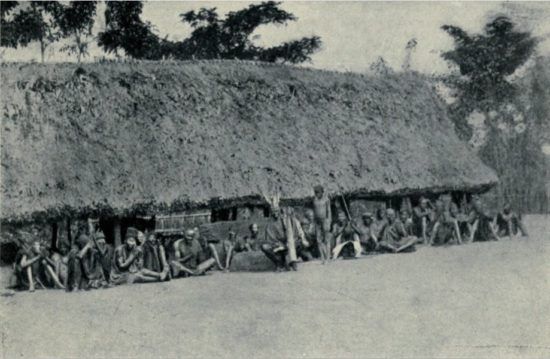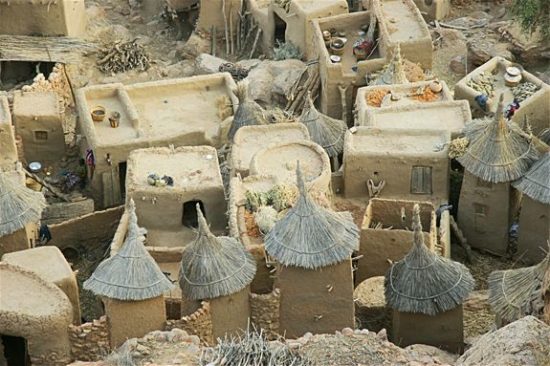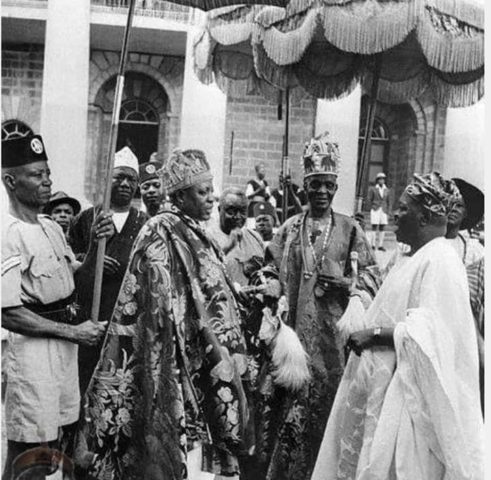Life And Time Of Ogedengbe | Yoruba Warriors
Many tales of great and mighty generals of war exist in the Yoruba culture, but none has withstood the test of time as much as Ogedengbe.
His remarkable strength, bravery, war strategies, leadership, and patriotism for his hometown are features that earned him the title “Ogedengbe Agbogungboro.”
Table of Contents
Who was Ogedengbe?
Ogedengbe was born in 1822 into the family of Pa Apasan Borijiwa and Juola Orisatomi (Madam Falupo) as Orisarayibi Ogundamola in Atorin village, Ilesa, Osun state.
Read Also: Life And Time Of Shodeke | Egba History
He was always very stubborn, wild, and reckless, but he was exceptionally strong and possessed peculiar leadership and diplomatic skills, which helped him deliver his people from their oppressors who ravaged his homeland for about 100 years.
His birth, according to the oral tradition, coincided with the Ogun festival. At the time, it was culturally important for the King (Owa of Ilesha) to invite all the spiritual leaders, commonly referred to as “Babalawos,” to come together and commune with the gods to predict the aftermath of the new year.
At this gathering, one particular spiritual leader foresaw a child’s birth on the “Isegun” day, the child that would deliver the Ijesha people from their tyrants.
Read Also: Lisabi Agbongbo Akala | Egba history
Ogedengbe was the only child born that day throughout the land, and he was well cared for and treated preferentially by his parents and the king.
He breastfed until the age of seven. As a result, he was very rude, lacked courtesy for elders, and had a habit of calling his parents by their first name. His father was also promoted to the king’s cabinet as his adviser, at the advent of his birth.
At the age of 17, he joined a group with a similar cause he was interested in, called “Ipaye,” responsible for community service.
He was made the group’s deputy leader due to his exceptional strength, valor, and brawn.
Personal Life
Ogedengbe got married at the age of 35 to a lady of Ijesha origin named “Orisaleke.”
Orisaleke parents did not want her to marry Ogedengbe due to his arrogant and disrespectful attitude. After the rejection, he forcefully took the lady from her parents’ house to his, and the lady later got pregnant.
Life And Time Of Ogedengbe in Captivity
The incident was reported to the king, and was in three months’ imprisonment. Shortly after his release, an expansionist movement of Ijesha reached the Ekiti communities of Efon, Itaawure, and Oke-Imesi.
Ogedengbe joined this movement, and on this encounter, he was captured and taken by the Ibadan army and taken to Ilesha, a region Ibadan had under control.
Read Also: The Rise & Fall Of Oyo Empire | Yoruba History
During his time in Ibadan’s army captivity, Ogedengbe engaged in an attack on Igbajo by Ilesha and a counterattack on Ilesha by Ibadan, which led to the collapse of the Ijesha army and the escape of Ogedengbe to Ita-Ogbolu.
Life And Time Of Ogedengbe as a war hero
During all these escapades, his powers and popularity soared, and his clout grew exponentially.
He attracted many followers, and his leadership was authoritarian, but despite that, he was greatly respected and feared as he had a great magical power, which put him on the spotlight during and after the Kiriji war, a war that resolved Ibadan’s tyranny on the Ekiti and Ilesha people.

Kiriji war started after the decline of the Oyo Empire, Yorubaland like Ekiti, thought they should be independent communities with sovereignty.
It was a sixteen-year war for power, influence, and political domination. All of Ekiti, Ijesha came together, forming an alliance called “Ekiti-Parapo.”
Ijebu, Ilorin, and Ife also joined this alliance later on, and Ogedengbe led the war. During the war, an Ibadan soldier severed his head. Ogedengbe would stay in his house and accurately fire arrows to the battlefield, and he was also known for his disappearing habit on the battlefield.
Read Also: The Owu War And The kingdom | Yoruba History
He learned so many battle tactics during his capture, gained more knowledge about war, and acquired sophisticated war strategies.
Nevertheless, in one failed attempt to escape from his jailer, General Bashorun Ogunmola, his face was disfigured with “Ila” (tribal marks).
His face was marked to humiliate him and with the hope that he will be captured as an Ibadan indigene.
Ogedengbe’s exploits also took Ekiti and Akoko areas where he subdued and took lots of them in captivity. His war exploits went as far as the present-day “Edo.”
The Oba of Benin had to pacify him before he resulted in waging war against them. He believed that he had about 99 wives, and had his daughters married to powerful families for political power and cementing alliances.
As a warrior and a fierce leader, he was very distrustful and very careful, especially against food poisoning. He had a fearful but loyal dog he would send on errands for supplies and needs.
Read Also: Dogon People And Astronomy | African Tribes
After the Ekiti Parapo war and the great turbulence in the Yoruba world, Ogedebgbe settled in his hometown in Ilesha.
However, his subordinates have not gotten used to the civilian atmosphere. Hence they caused terror to innocent citizens and wreaked havoc in the community by assaulting and kidnapping individuals.
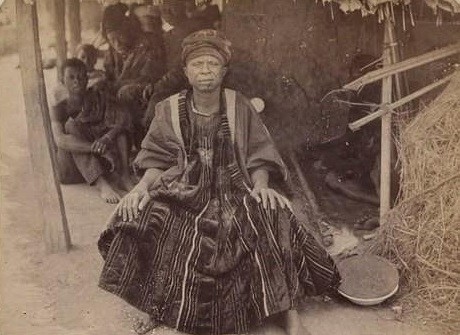
It was this act that made Captain R.L Bowler order for his arrest in 1894 alongside his friend, the Owa of Ilesha.
Fredrick Haastrup pleaded passionately for his release, and after much appeased, he was released.
Afterward, Ogedengbe was awarded a chieftaincy title of Obanla of Ijesha in 1898, the largest feather in his cap for his Ekitipaparo war accomplishments. He died in 1910 as a good chief.

